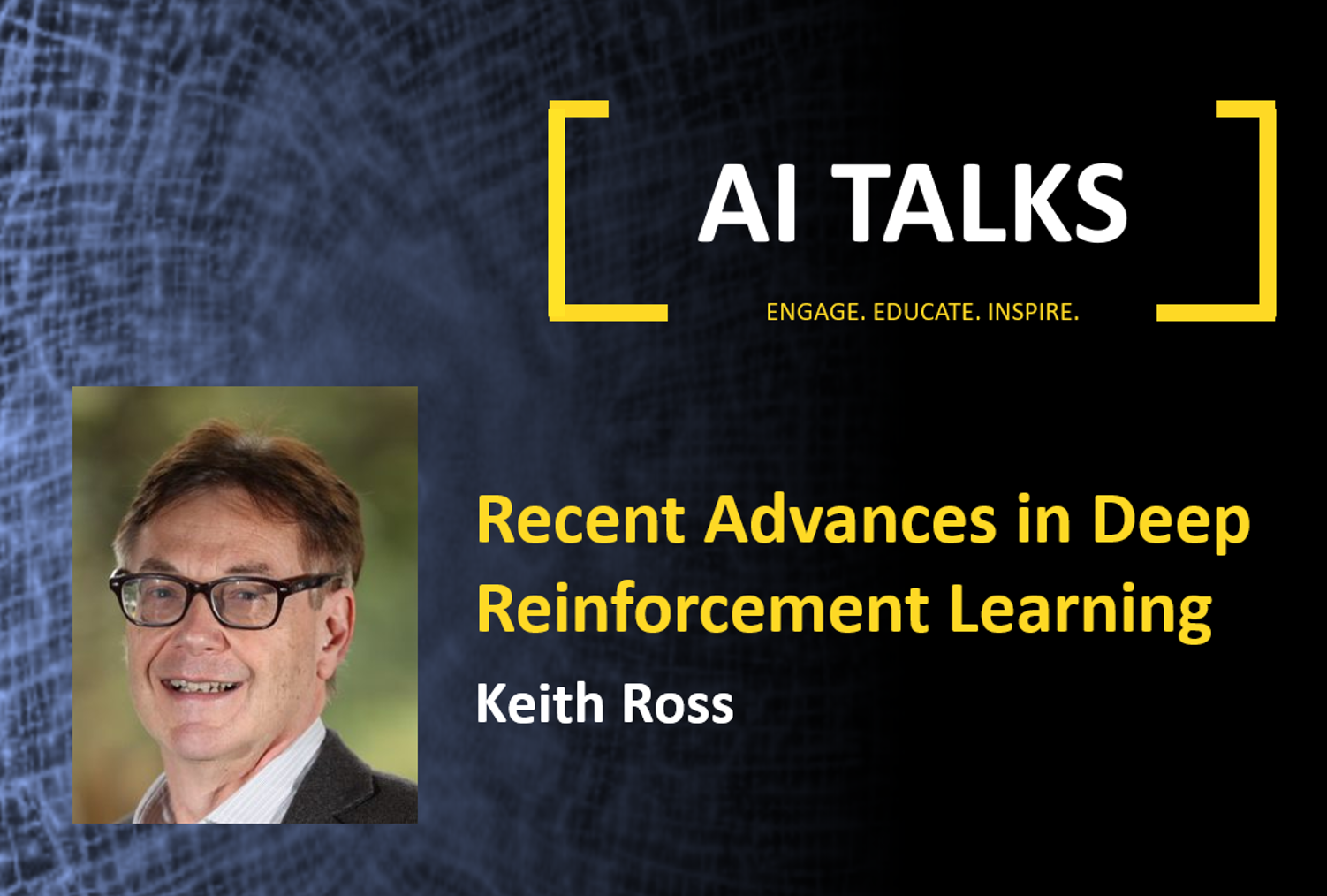Explore
Recent Advances in Deep Reinforcement Learning
Monday, January 23, 2023

Reinforcement learning is about learning to make sequential decisions through interactions with an environment. Traditional tabular reinforcement learning suffered from the curse of dimensionality and therefore was rarely employed in important applications. Recently reinforcement learning has been combined with deep learning to create Deep Reinforcement Learning (DRL), enabling researchers to break through the curse of dimensionality and obtain striking results in a wide range of diverse applications, including learning to play the Atari games from raw pixel inputs, learning to beat the grand masters at Go, learning to control tokamak plasmas for nuclear fusion, learning computationally efficient algorithms for matrix multiplication, and most recently making the responses in ChatGPT3 more human-like and accurate. In this talk, I will first briefly review some of the DRL breakthroughs, then discuss our own algorithmic research on DRL for high-dimensional state and action spaces, and its application to robotic locomotion.
About the Speaker:
Keith Ross is the Dean of Computer Science, Data Science and Engineering at NYU Shanghai. He also holds affiliated appointments with the two computer science departments at NYU in New York. Previously he was a professor at University of Pennsylvania. and a professor at Eurecom Institute. He holds a PhD from The University of Michigan. He is an ACM Fellow and an IEEE Fellow. He is co-author of the popular textbook, Computer Networking: A Top-Down Approach Featuring the Internet, published by Pearson (first edition in 2000, eighth edition 2020). It is the most popular textbook on computer networking, both nationally and internationally, and has been translated into fourteen languages. In 1999, he co-founded and led Wimba, which developed voice and video applications for online learning. He was the Wimba CEO and CTO from 1999 to 2001. Wimba was acquired by Blackboard in 2010. His current research interests are in deep reinforcement learning. He has also worked in Internet privacy, peer-to-peer networking, and the modeling and measurement of computer networks. At NYU Shanghai he has been teaching Machine Learning, Reinforcement Learning, and Introduction to Computer Programming.
About the Speaker:
Keith Ross is the Dean of Computer Science, Data Science and Engineering at NYU Shanghai. He also holds affiliated appointments with the two computer science departments at NYU in New York. Previously he was a professor at University of Pennsylvania. and a professor at Eurecom Institute. He holds a PhD from The University of Michigan. He is an ACM Fellow and an IEEE Fellow. He is co-author of the popular textbook, Computer Networking: A Top-Down Approach Featuring the Internet, published by Pearson (first edition in 2000, eighth edition 2020). It is the most popular textbook on computer networking, both nationally and internationally, and has been translated into fourteen languages. In 1999, he co-founded and led Wimba, which developed voice and video applications for online learning. He was the Wimba CEO and CTO from 1999 to 2001. Wimba was acquired by Blackboard in 2010. His current research interests are in deep reinforcement learning. He has also worked in Internet privacy, peer-to-peer networking, and the modeling and measurement of computer networks. At NYU Shanghai he has been teaching Machine Learning, Reinforcement Learning, and Introduction to Computer Programming.
Venue
Online Webinar